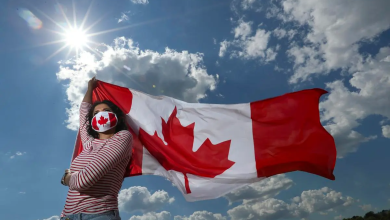Why is US Independence Day Considered a Federal Holiday?
Honoring Freedom: The Significance of Independence Day as a Federal Holiday
Independence Day: Why It’s a Federal Holiday in the US

Independence Day, also known as the Fourth of July, holds a special place in the hearts of Americans as a day of celebration, reflection, and national pride. Observed annually on July 4th, this federal holiday commemorates the signing of the Declaration of Independence in 1776, which marked the birth of the United States of America as an independent nation. But why exactly is Independence Day considered a federal holiday in the United States? In this article, we delve into the historical, cultural, and legal reasons behind the recognition of Independence Day as a federal holiday.
Historical Background of Independence Day
The Declaration of Independence
On July 4, 1776, the Continental Congress adopted the Declaration of Independence, drafted primarily by Thomas Jefferson, declaring the thirteen American colonies’ independence from British rule. This seminal document articulated the colonies’ grievances against King George III, asserted their natural rights to self-governance, and laid the foundation for the establishment of a new nation based on democratic principles.
Birth of American Independence
The adoption of the Declaration of Independence marked a pivotal moment in American history, symbolizing the colonies’ collective resolve to break away from British tyranny and establish a sovereign nation founded on principles of liberty, equality, and self-determination. The Fourth of July thus became synonymous with the birth of American independence and the ideals that continue to shape the nation’s identity.
Evolution of Independence Day Celebrations
Early Observances
In the years following 1776, Independence Day was celebrated with public readings of the Declaration of Independence, patriotic speeches, parades, and communal gatherings. The festivities reflected the newfound pride and unity among Americans as they embraced their identity as citizens of a free and independent nation.
Recognition as a National Holiday
While Independence Day was widely celebrated across the United States in the 18th and 19th centuries, it was not recognized as a federal holiday until much later. The federal government initially treated July 4th as a regular workday, with observance varying among states and local communities.
Granting of Federal Holiday Status
The movement to establish Independence Day as a federal holiday gained momentum in the late 19th and early 20th centuries. On June 28, 1870, Congress passed legislation making July 4th a federal holiday for federal employees in the District of Columbia. Over time, this recognition expanded to include all federal employees nationwide, and eventually, Independence Day became a universally recognized federal holiday throughout the United States.
Reasons Independence Day is Considered a Federal Holiday
Commemoration of National Identity
Independence Day is celebrated as a federal holiday to commemorate and honor the birth of American independence. It serves as a reminder of the sacrifices made by the Founding Fathers and countless individuals who fought for freedom and self-governance against British rule.
Reflection of Democratic Values
The observance of Independence Day underscores fundamental democratic values such as liberty, equality, and the right to pursue happiness. These principles, enshrined in the Declaration of Independence, form the bedrock of American democracy and are celebrated annually through civic rituals and traditions.
Uniting Americans Across Generations
Independence Day fosters a sense of national unity and pride by bringing Americans of diverse backgrounds together in celebration of shared history and heritage. The holiday promotes solidarity and inclusivity as communities across the country engage in festivities that honor American traditions and values.
Cultural and Patriotic Significance
Independence Day has assumed cultural significance as a day of patriotic expression, symbolized by displays of the American flag, fireworks, parades, and ceremonies honoring military service members and veterans. These traditions reinforce national pride and reinforce the importance of civic engagement and civic responsibility.
Modern Observance of Independence Day
Festivities and Traditions
Today, Independence Day is celebrated with a variety of festivities that reflect both historical customs and contemporary trends. Fireworks displays remain a hallmark of the holiday, with cities and towns organizing elaborate shows that attract spectators of all ages. Parades featuring marching bands, floats, and patriotic themes showcase community spirit and pride.
Family Gatherings and Barbecues
Independence Day also serves as an occasion for family gatherings, backyard barbecues, and picnics, where Americans enjoy traditional foods such as hamburgers, hot dogs, potato salad, and apple pie. These gatherings foster bonds among family members and friends while reinforcing the sense of community and shared heritage.
Cultural and Educational Activities
Many communities organize cultural and educational activities on Independence Day, including historical reenactments, museum exhibits, and lectures that highlight significant events and figures from the Revolutionary War era. These programs promote understanding of American history and encourage civic engagement among participants of all ages.
Conclusion: Honoring America’s Founding Principles
In conclusion, Independence Day is considered a federal holiday in the United States due to its profound historical significance, cultural importance, and reflection of core democratic values. The holiday commemorates the signing of the Declaration of Independence and the establishment of the United States as a free and independent nation, reaffirming principles of liberty, equality, and self-governance. Just as we know Why was the Name Changed from Dominion Day to Canada Day?
As Americans gather each year on July 4th to celebrate Independence Day, they pay tribute to the enduring legacy of the Founding Fathers and the generations of Americans who have upheld the ideals of freedom and democracy. Through fireworks displays, parades, family gatherings, and civic ceremonies, Independence Day remains a cherished occasion that unites the nation in pride, patriotism, and appreciation for the freedoms enjoyed by all Americans.




